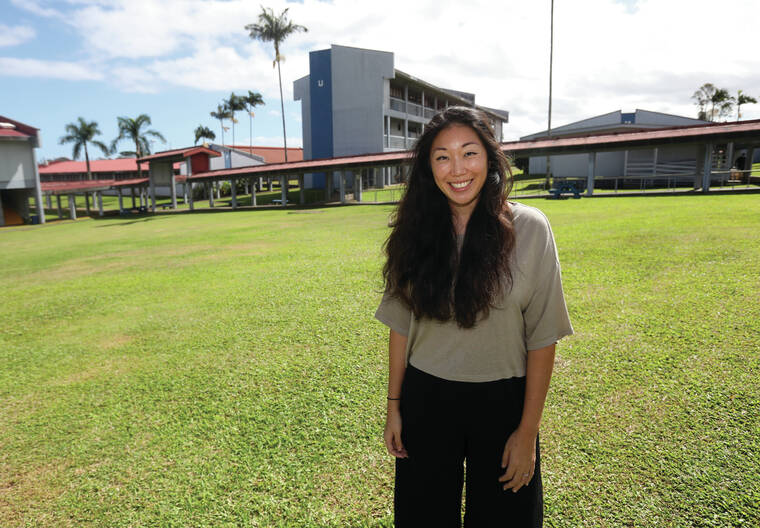Big Island teacher Whitney Aragaki has a chance to be the National Teacher of the Year after dedicating her career to teaching science at Waiakea High School.
Earlier this month, it was announced that Aragaki is one for four finalists for the prestigious nationwide honor.
In December, Aragaki, 35, was named Hawaii’s Teacher of the Year because of her use of cultural and place-based activities to engage students in her science classes.
“I was definitely surprised,” Aragaki said. “To even be Hawaii’s teacher of the year out of 15 complex areas is a huge honor.”
Aragaki, an alum of Waiakea High School, returned to her alma mater to teach environmental science and biology.
“Once I became an educator, I felt that it was my kuleana to give back to the Waiakea community as an alum,” Aragaki said. “It means the world to me to teach at Waiakea. It’s nice to feel familiar and to have a sense of belonging, which in turn gives me a sense of responsibility.”
Aragaki has taken that feeling of responsibility and used it to teach her students through place-based learning, which is a teaching method that helps relate subjects to relevant people, places and cultures.
“I work to make science relevant to students in the context of where they live and who they are,” Aragaki said. “We bring in the environment, their families and communities into the learning experience.”
Aragaki’s teaching emphasizes conversations, practices and systems that sustain the intimate inter-relationship of public education, community and the environment.
Before the COVID-19 pandemic, Aragaki and her students would visit the Keauhou Bird Conservation Center and work with the ‘Alala Project through the San Diego Zoo.
The San Diego Zoo also has helped the science department develop its own greenhouse on campus.
The partnerships and activities Aragaki has been able to foster for her students has u helped them learn science in the context of their home.
“I hope my students will be able to take away a heightened responsibility to take care of our natural environment after they leave my class,” Aragaki said. “I hope they make mindful decisions with the community and environment at the forefront of their minds.”
While the pandemic has taken away travel opportunities for contests, students are still able to meet in groups, attend competitions over Zoom,and participate in online science fairs.
“I think students are just happy to be on campus. Their joy for learning permeates through distance learning and other protocols,” Aragaki said. “Although, I am grateful to have online lessons ready for students who may have to quarantine in the future.”
Through the Hawaii Virtual Learning Network, Aragaki teaches Advanced Placement environmental science and computer science principles to students whose schools do not offer the specific courses in those fields.
“I offer these classes because they aren’t available at every school, and students deserve the opportunity to learn something they may not be able to access,” Aragaki said. “It was something I participated in as a student, so I have a soft spot for e-learning.”
Aragaki currently is a student at the University of Hawaii at Manoa College of Education, where she is pursuing a doctorate degree in philosophy with a focus in curriculum and instruction.
She hopes to continue fostering a hands-on approaches to learning and influencing students to put science and the environment at the forefront of their thoughts.
The selection for the National Teacher of the Year will be made in February and announced this April.
Email Kelsey Walling at kwalling@hawaiitribune-herald.com

